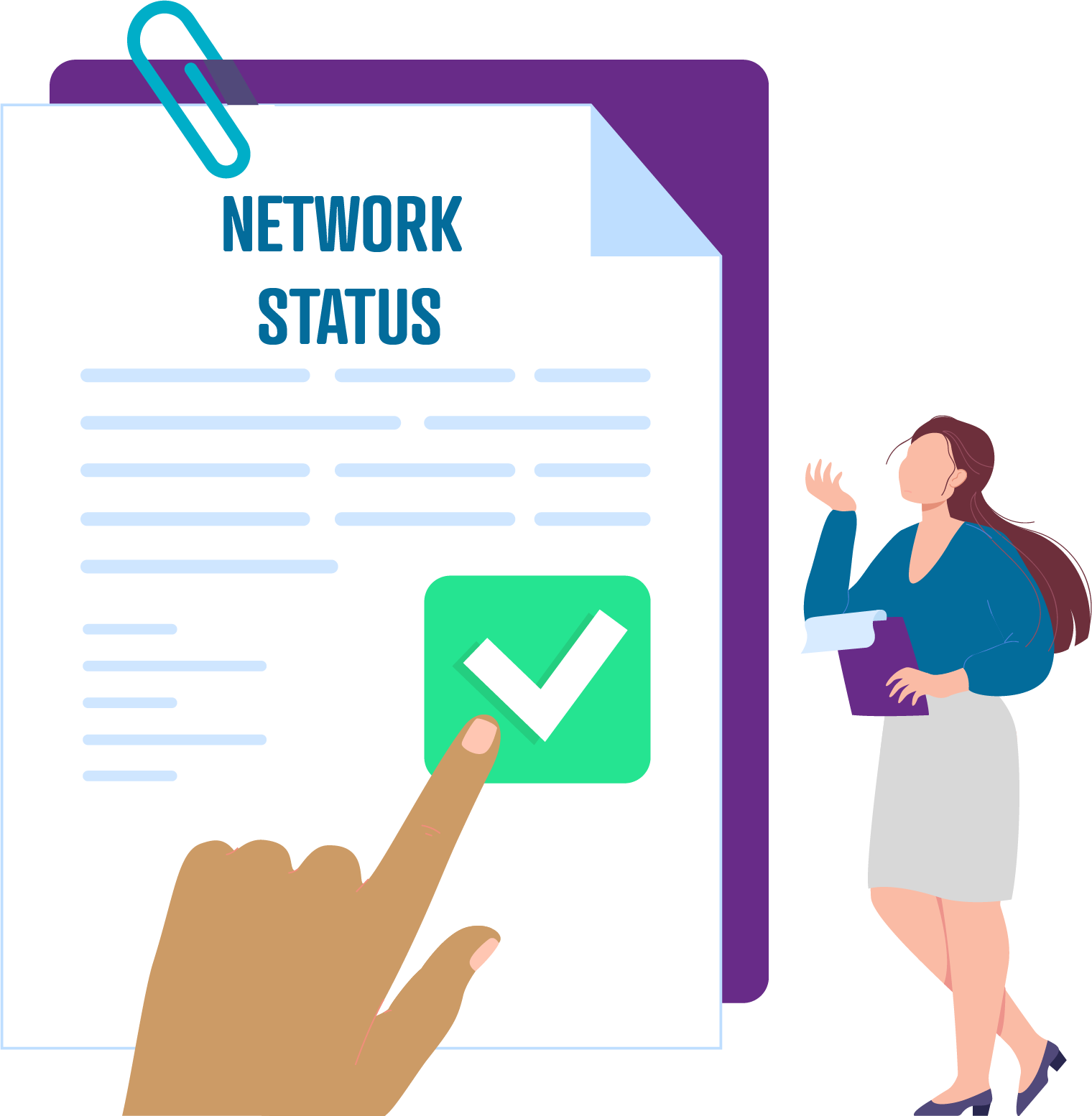Advantages of Laboratory Credentialing and Payer Network Status

As a laboratory billing company, we understand that the financial health of laboratories is intrinsically tied to their ability to navigate the complex world of healthcare billing. One key factor that significantly impacts revenue is the process of laboratory credentialing and obtaining in-network status with payers. In this article, we will explore the pivotal role these processes play in optimizing billing operations and boosting laboratory revenue.
- >260,000 CLIA outpatient labs in US
- Estimated >65-70% labs are Out of Network
- Out of Network lab expense ~20% at Payers
- Out of Network lab expense ~60%+ at outpatient labs
- Reimbursement rates as a percentage of Medicare: 40%-120%
source: Lighthouse Lab Services
Understanding Laboratory Credentialing
What is Laboratory Credentialing?
Laboratory credentialing is the process by which healthcare organizations and insurance companies evaluate and approve laboratories to provide specific services. It’s a quality assurance mechanism to ensure that laboratories meet specific standards, including proficiency testing, quality control, and compliance with regulatory guidelines.
Why is Laboratory Credentialing Important?
- Reputation and Trust: Credentialing enhances a laboratory’s reputation, signaling to patients and providers that it meets industry standards for accuracy and reliability.
- Legal Compliance: Many states and federal regulations require laboratories to be credentialed to perform certain tests, ensuring compliance with health and safety standards.
- Payer Access: Credentialing is often a prerequisite to becoming part of insurance payer networks, allowing labs to accept insurance payments.
- Streamlined Billing Operations: Laboratory credentialing ensures that laboratories meet stringent industry standards and regulatory guidelines. When a laboratory is credentialed, it becomes easier for us as a billing company to process claims and bill insurance providers efficiently.
- Enhanced Reimbursements: Credentialed laboratories are more likely to secure higher reimbursements for their services. Insurance companies have greater trust in laboratories that have undergone the credentialing process, resulting in fewer claim denials and faster reimbursement turnaround times.
- Reduced Administrative Burden: By obtaining laboratory credentialing, laboratories can significantly reduce the administrative burden associated with billing. This allows laboratories to focus on their core functions while we handle the billing complexities with ease.
Significance of Obtaining Payer Network Status
What is Payer Network Status?
Payer network status refers to the approval of a laboratory by insurance companies to be part of their network of preferred providers following the laboratory credentialing process. Also called, contracting, or obtaining contracts. It allows laboratories to accept insurance payments directly from patients’ insurance plans.
Why is Payer Network Status Important?
- Increased Patient Base: Being in-network attracts patients who prefer to use their insurance coverage for medical services, expanding the laboratory’s patient base.
- Steady Revenue Stream: In-network status ensures a steady flow of revenue from insurance reimbursements, reducing dependence on out-of-pocket payments.
- Competitive Edge: Laboratories in-network have a competitive advantage over those that aren’t, as they are more accessible and affordable for patients.
The Laboratory Credentialing and Payer Network Status Process
- Determine Eligibility: Before starting the process, labs must ensure they meet the eligibility criteria set by payers. This includes having appropriate licensure, accreditation, and the ability to perform required tests.
- Gather Required Documentation: Collect all necessary documents, including licenses, certifications, quality assurance records, and compliance reports. These documents will be used to demonstrate your laboratory’s capabilities and compliance.
- Complete Applications: Different payers may have different application processes. Ensure that you complete all applications accurately and thoroughly. Missing or inaccurate information can lead to delays or denials.
- Quality Assurance and Proficiency Testing: Laboratories must participate in proficiency testing and quality control programs to demonstrate their accuracy and reliability. Maintain records of these activities for submission.
- Onsite Inspection: Some payers may conduct onsite inspections to assess your laboratory’s facilities and operations. Ensure that your laboratory is prepared for these visits.
- Monitor and Follow Up: Once the applications are submitted, monitor the progress and follow up with payers as needed. Keep communication lines open to address any concerns or requests for additional information promptly.
The Synergy Between Credentialing and Lab Billing
Expedited Claims Processing
With laboratories being credentialed and in-network, our billing company can process claims swiftly. This leads to quicker reimbursements, reducing accounts receivable days and improving cash flow.
Fewer Claim Denials
Credentialing and in-network status enhance the credibility of laboratories in the eyes of payers. This translates to fewer claim denials, reducing the need for time-consuming appeals and re-submissions.
Revenue Maximization
The synergy between credentialing, in-network status, and efficient billing processes results in revenue maximization for laboratories. Our billing company ensures that every eligible dollar is captured and accounted for.
Challenges and Best Practices
Common Challenges
Health insurance firms employ various methods and adopt diverse strategies when overseeing their provider networks. Take, for instance, Health Maintenance Organization (HMO) networks, which often feature a more constrained selection of in-network providers owing to stringent contracts and network management tactics. Conversely, Preferred Provider Organization (PPO) networks usually provide members and providers with greater flexibility in selecting which laboratories to utilize. Some insurers rely on specific network requirements as criteria, while others insist on labs being situated within their state or designated service region. These represent only a few of the conditions that could limit a laboratory’s ability to participate in a network.
Other issues independent labs may face in the credentialing process is offering a marketable test menu to payers, staying on top of openings to apply, and managing the unique requirements each payer is looking for throughout the credentialing process. The timeliness of the process varies, but can be lengthy and leave labs devising billing solutions without network status for some time.
Best Practices
Throughout the laboratory credentialing process, several best practices can significantly enhance the chances of success.
1. Maintaining meticulous records of your patient population is paramount. Payers require insight into lab utilization and values from outpatient labs when considering contracts. Although lab expenses represent a small fraction of a payer’s annual claims expenditure, lab tests and values significantly impact clinical decision-making. Hence, lab values, akin to pharmacy data, hold significant importance when labs are being assessed based on patient population, test utilization, and other factors that sway payer contract decisions.
2. Laboratories should keep comprehensive documentation of all licenses, certifications, quality assurance activities, proficiency testing results, and compliance records. These records serve as tangible evidence of the laboratory’s commitment to quality and compliance, making it easier to demonstrate eligibility to payers. Healthcare regulations are subject to change, and laboratories must proactively adapt to these shifts to ensure continuous compliance.
3. In scenarios where networks are closely regulated or entirely closed, one effective approach to demonstrate your value to the payer is by offering a diverse or specialized test menu. This can be demonstrated through tests that address an underserved patient population in your area or a test that appeals to payers with high returns, such as genetic testing.
4. Collaboration with experienced consultants or credentialing experts can be immensely beneficial. These professionals possess the expertise and knowledge to navigate the intricacies of the credentialing process efficiently, offering guidance and support at every step. By embracing these best practices, laboratories can streamline their credentialing journey, minimize delays, and position themselves for success in the healthcare industry.
Conclusion
Laboratory credentialing and achieving payer network status are crucial steps for laboratories to thrive in the healthcare industry. It not only ensures quality care but also facilitates financial stability. Staying proactive in compliance and quality assurance can help laboratories navigate the complex credentialing process successfully, ultimately benefiting both patients and providers.
STAY UPDATED ON NEWS & BLOGS
Ready to grow your lab?
FOLLOW US
Discover How You Can Earn More Revenue
With Laboratory Reimbursement Experts
We help your practice or laboratory identify and implement one of a kind solutions to maximize your laboratory services revenue.
Read Our Latest Posts
HHS & CMS Secure Major Reforms to Prior Authorization
ON THIS PAGE What HHS and CMS Are Doing Context: Building on Earlier Reforms Implications for Laboratory Professionals Implications for OB/GYN Physicians Bottom LineDate: June 23, 2025 (U.S. Department of Health & Human Services press release) Published: July 7,...
Genomic Lab Billing 101
ON THIS PAGE Why Genomic Lab Billing Matters What Is Genomic Lab Testing? Key Differences from Molecular Lab Testing Challenges in Genomic Lab Billing and Reimbursement Understanding Genomic Lab Revenue Cycle Management Services How Genomic Lab Billing Services...
How to Choose A True Pathology Billing Company
ON THIS PAGE The Challenges Facing Independent Pathology Labs The Costly Consequences of Choosing the Wrong Pathology Billing Company How to Choose the Right Pathology Billing Company Know What You're Worth: Key Pathology CPT Codes and Reimbursement Rates Switch to a...



